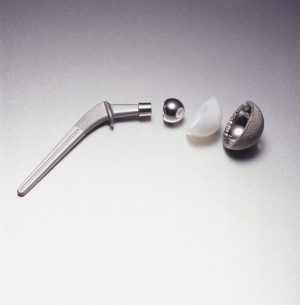Practice Areas
What Are DePuy Hip Replacement Lawsuit Frequently Asked Questions?
ASR Hip Replacement Recall FAQs
If you or someone you know suffered pain and/or had to undergo additional surgery as a result of having the DePuy Hip replacement, contact attorneys Chris Hellums and Jon Mann of Pittman, Dutton, Hellums, Bradley & Mann, P.C. today.
Johnson & Johnson’s artificial joint replacement company DePuy Orthopaedics, Inc. has issued a recall of two hip replacement products because of high failure rates that necessitated second surgeries.
DePuy Orthopaedics, Inc. recalled the ASR XL Acetabular System and the ASR Hip Resurfacing System after data showed that within five years, one in eight patients (12%-13%) needed a “revision surgery,” which is required when an artificial joint doesn’t properly fit. Serious pain and difficulty walking can result from a faulty hip replacement. The “ASR” stands for articular surface replacements, meant to replace a damaged or diseased hip.

What Hip Replacement Products Have Been Recalled?
DePuy has recalled the following hip replacement products:
- ASR XL Acetabular System – was on the market since 2004 and sold worldwide.
- ASR Hip Resurfacing System – was on the market since 2003, and sold exclusive outside the United States.
All remaining products on hospital shelves will be immediately removed.
How Can I Tell if I Have a Recalled Hip Device?
By now, your surgeon should have contacted you on behalf of DePuy to notify you that your implant has been recalled. If not, and you are having the symptoms below, contact your physician or the hospital where the surgery was performed and request a copy of the “chart stick” from your surgery. Most likely, you have the ASR XL Acetabular System. The ASR XL Acetabular System is a 3 component system comprised of: the femoral stem (which is inserted inside the femur), the femoral head (or ball) that connects to the stem, and then fits inside the acetabulum (cup). A unique characteristic of the ASR XL Acetabular system is that it is a metal-on-metal device meaning both the ball and cup portion of the implant are metal.
What Are the Common Problems/Symptoms With the ASR Hips?
Component loosening, component misalignment, infections, bone fractures, dislocation, loss of muscle mass, unexplained hip pain, thigh and groin pain, pain when walking or rising from seated position, and clicking sounds. X-rays can also reveal metal debris, which can ultimately lead to inflammation of the surrounding tissue.
What Should I Do if I Received a Defective Hip Replacement?
Always consult your doctor or physician regarding health-related issues, but if you or someone you care about received defective joint replacement components, we would like to speak with you right away. DO NOT SIGN A RELEASE FROM THE SURGEON OR DEPUY. It is imperative that you do NOT sign the release sent to you by your physician on behalf of DePuy. These releases will allow DePuy complete access to your medical records and allow them to obtain possession of the defective implant in the event it is removed.
Who Discovered Problems and When?
The defects were first documented by the Australian National Joint Replacement Registry in early 2008. The evidence presented clearly demonstrated a very high rate of failure concerning this device. Australia withdrew this device from the market in December 2009. Researchers from a British study also reported problems with the metal-on-metal implants causing adverse soft tissue reactions resulting from the friction of the metal-on-metal surfaces. These patients showed higher rates of wear and tear and soft tissue damage. The United States Food and Drug Administration did not participate in a recall despite this information. Hospitals and hip surgeons in the United States had been warned about the defects of this device, but continued to use it anyway, until DePuy voluntarily recalled the product in March, 2010.









